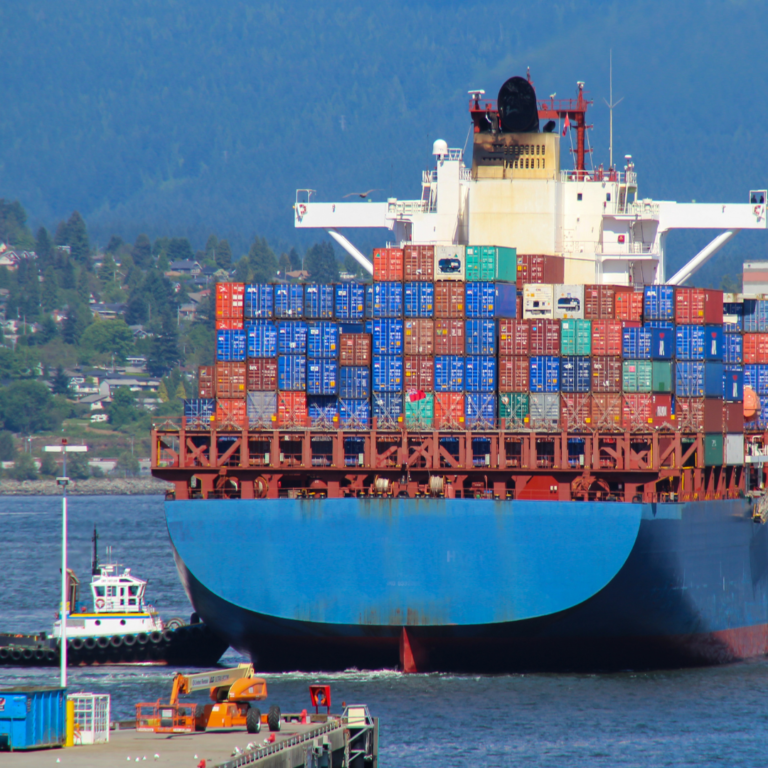The maritime corridor is expected to remain crucial in global cereal trade.
Ukraine has successfully increased its grain exports from the Black Sea to levels not seen since before the Russian invasion. Despite the crisis in maritime transport in the Red Sea, Ukraine’s success in replacing a UN-backed agreement with its own maritime transport plan has been a relief for farmers and importing countries.
This shift in exports has contributed to stabilizing the Ukrainian economy. In December, Ukraine shipped around 4.8 million metric tons of food, primarily cereals, from its Black Sea ports, surpassing volumes from the previous UN-sponsored corridor.
However, the situation in the Red Sea raises concerns for the agricultural industry. Attacks on navigation in the Red Sea by the Houthi rebels, aligned with Iran, have disrupted trade between Europe and Asia. Ukrainian grain exports by sea could decrease by approximately 20% in January due to the crisis in the Red Sea.
Following its new export plan, Ukraine has also started supplying grain to Pakistan for the first time since the Russian invasion. Analysts and traders note that grain vessels are increasingly diverting from the route between the Suez Canal and the Red Sea, and the situation in the Red Sea could complicate long-distance shipments from Ukraine.

Ukraine’s food exports to the Black Sea remain substantial, with 1.9 million tons shipped in January so far and the prospect of an additional 1.7 million tons for the rest of the month. Ukrainian producers view the maritime route favorably as an improvement over improvised routes through the European Union and the previously UN-backed corridor, which involved prolonged inspections with Russia, increasing shipping costs.
With the new corridor, corn export prices have risen by around $30 per ton. Ukraine aims to solidify the role of its Black Sea corridor, serving three ports in the Odesa region, seeking recognition from the UN International Maritime Organization, which could send a mission in February to alleviate concerns about the Russian military threat at sea.
Ukraine plans to increase cargo shipments, including metallurgical products, from Black Sea and Danube ports to 8 million tons per month. Despite fragile export security due to intermittent Russian attacks and mines in the Black Sea, the disruption in the Red Sea route to Asia could lead to increased Ukrainian grain entering the European Union.
Despite concerns, the maritime corridor is expected to remain crucial in global cereal trade, with buyers attracted by competitive Ukrainian prices.

The story of the first car race in Paris: a historic hit in 1894
Paris stands not only as a cultural and artistic epicenter but also as a pioneer in car racing In the history of automotive racing, Paris

Top states for driving in the United States in 2024
A WalletHub study compared all 50 states to determine the best driving conditions Road safety and quality are central concerns for drivers. And while the

Briefs: marijuana reclassification, vehicle fees, and climate grants
The trucking industry goes through new legislation, taxes and subsidies Questions about the proposed reclassification of marijuana The Owner-Operator Independent Drivers Association (OOIDA) supports the

Impact of traffic pollution: study reveals increase in blood pressure
A study from the University of Washington in Seattle reveals that the main cause of significant increases in blood pressure might be traffic-related gasses A

The benefits and careers of a Commercial Driver’s License
Having a CDL opens multiple doors within the trucking and transportation industry Having a Commercial Driver’s License (CDL) opens multiple doors within the trucking industry,

Sharing the road with a truck: steps to ensure your safety
Caution around blind spots and anticipating truck maneuvers are essential to ensuring everyone’s safety Truck drivers face significant challenges on the road due to their
